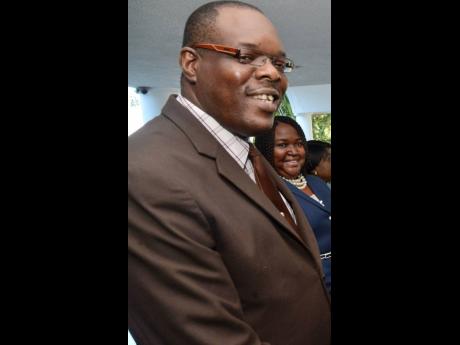CXC bows to extension lobby
Narrower study regimen to be released by Friday
Yielding to intense lobbying from teachers, governments, and UNICEF, the Caribbean Examinations Council (CXC) has made adjustments to this year’s examinations in the wake of COVID-19 displacement as well as volcanic activity in St Vincent.
Examinations at the Caribbean Advanced Proficiency Examination (CAPE) and the Caribbean Secondary Education Certificate (CSEC) levels have been pushed back by two weeks and will now commence on June 28.
Students will be required to sit Papers 1 and 2.
UNICEF joined a chorus of complaints, including from the Caribbean Union of Teachers, on Monday urging CXC to delay the start of the external examinations by three weeks and to simplify the content and methodology.
Registrar Dr Wayne Wesley said on Wednesday that among the decisions made at the special council meeting on Tuesday was to extend the deadlines for school-based assessment (SBA) submissions and deferrals.
All SBAs are now due on June 30, while students now have until May 31 to defer sitting the 2021 examinations.
At present, 1,090 CAPE students and 13,655 CSEC students have deferred sitting exams.
“Next year, more centres will actually be available for students to write their examinations, so in terms of the capacity to write exams and accommodate a larger volume of students, there is no challenge there,” Wesley said in response to how deferral students will be facilitated.
BEST INTEREST
The registrar said that these decisions were made in the best interest of CXC’s regional stakeholders, including teachers, parents, students, and ministries.
“Further consideration will be given during the grading process, to account for the likely psychosocial impact on students’ performance, to ensure that they are not disenfranchised,” Wesley said during a press conference on Wednesday.
In early May, CXC had released a 47-page document detailing the topics for the 2021 exams.
But territories submitted queries, suggesting that the span of topics was too broad and vague. The review of the document will be released no later than Friday.
Wesley is encouraging as many education ministries and schools as possible to register for the e-testing modality.
Some 17,343 CSEC and 1,539 CAPE candidates have so far opted to do their exams electronically.
This represents 39 examination centres across 11 territories.
“The majority is still paper-based, but there are quite a number of countries, for example, the BVI, Dominica, and others, who do write a lot of their examinations electronically,” said Wesley.
“If there are territories wanting to take this option up, it is still available because we are able to facilitate e-testing in a number of subjects.”
CXC launched e-testing in January 2017.
According to its website, the modality fits into candidates’ skill set as digital natives and makes testing accessible for disabled candidates who can utilize screen readers or enlarge text.
To combat the issues of Internet connectivity, candidates can sit e-tests fully online, partially online, or fully offline.
ADDITIONAL MARKERS
Wesley said that CXC has also been working to ensure that additional resources are available for the marking of papers to meet the late September to early October result release dates.
“We are looking at additional markers. We are looking at speeding up the process of sending off papers to be marked as they are completed, rather than waiting on bulk shipments,” he said.
The CXC registrar shared that provisions will be made for students who require their exam results in order to matriculate to international universities.
On completion of the grading and governance-control processes, preliminary grades will be sent to the institutions as indicated by students.
“We will just have to ensure that our quality assurance process is executed up to a particular point, where we can give valid and reliable grades that should not change much after,” he said.
CXC chairman, Professor Hilary Beckles, disclosed that the regional body is auditing and assessing the financial implications of its decisions.
Costs for rescheduling the exams will be absorbed internally by CXC.

